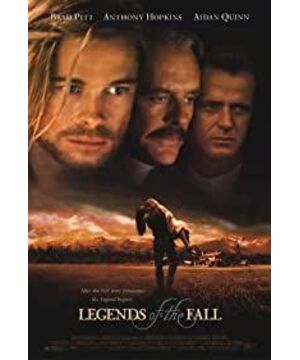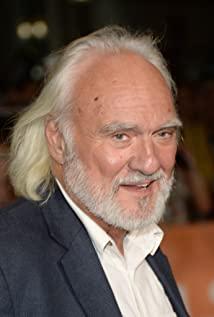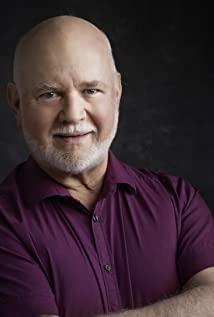North Americans respect bears, probably from the Indian tradition, because bears are the strongest animals on the North American continent, and their worship of bears is also a worship of strength and wildness. Our society today worships money, and we regard the rich as successful. However, among the Indian tribes, whether a person is good or not is measured on the basis of his "bear nature". It is a high praise to say that a person has a bear spirit. And "Legends of the Tristan in "Fall" is a man with a bear lurking in his heart. The old colonel in the film has three sons. The eldest son Alfred has a stable and restrained character. He is patriotic, has a sense of justice, and is keen on public affairs. He is a model role representing modern civilization. But he is the old colonel's least favorite son. The level of human civilization from the end of the nineteenth century to the beginning of the twentieth century is indeed very disappointing (the same is true today), and the old colonel participated in the civil war. Although the meaning of the American Civil War is positive, the process is extremely bloody and ugly— -As an ordinary soldier, the old colonel can only be exposed to the process of war, but not necessarily the meaning of war. He went from the initial full of blood to the final retreat and return to the field, living alone, who knows how much pain, anger and reflection he experienced during the period. However, it is obvious that the war made him no longer trust modern civilization, especially politics, and would rather live with the Indian chief "one shot". Alfred had a rift with his father because he was about to participate in the First World War. By the time Samuel died in the battle, the father and son had become strangers. Alfred, who could not be loved by his father, moved to the town and embarked on the road of politics, which once again angered the old colonel. He hated politicians, modern business and various interest organizations. The conflict between them reflects the value conflict of two civilizations: one is the modern civilization of white people, which is well-developed in business and commerce, which is both greedy and arrogant and ambitious to conquer the earth; the other is the morality of primitive tribes. I firmly believe that only the ancient way of life and the social state of a small country with few people can maintain human virtues. The latter is a kind of idealism, a state that our reason aspires to but cannot be realized in the real society. Until the end of the story, Alfred finally put family affection above his belief in the ugly modern civilization and thus regained his paternal love. We all know what the world was like in the early twentieth century. We know that the United States participated in World War I out of self-interest. But we can also imagine that when the U.S. government calls on young people to join the army, it must be Justice and moral responsibility are the main demands. But despite this, the United States at that time was just like an inexperienced young man when compared with the old fox-like European countries. There is certainly no shortage of old, cunning and slippery politicians in the US politics, but North America is not like Europe, which was so difficult at the time, and there is not a large group of countries with conflicting interests that are arguing with each other. The United States is so large, rich in resources, and autonomous. Their federal government is naturally not like the governments of European countries. It is controlled by a group of upper-level group members with highly consistent interests. Besides, Samuel, the youngest son of the old colonel, is innocent, innocent, sensitive and shy, like a child, and Beloved by two brothers and father. The old colonel allowed him to study at Harvard. It seems that what he hates is only modern politics, not the cultural traditions of Western civilization. However, it was precisely the outlook on life cultivated in university life that made Samuel feel obligated to go to Europe to fight for the just cause of mankind. This is a lie that is hard for a young man to see through, because young people think about the world too well and know very little. The old colonel was extremely angry and helpless. Although he may not know the ins and outs behind the First World War, he knew that the nature of this war was unjust based on the thorough insight given to him by his experience. More importantly, this is a war that has nothing to do with the American continent. Kind-hearted young people, because of ignorance and enthusiasm, and at the same time, in order to establish their own unreliable sense of existence, they devote themselves to a self-proclaimed noble and just cause, and were finally taken advantage of and ruined their lives. The old colonel must have seen too much of this kind of thing. NS. We read from Nick's description of Hemingway, who participated in the First World War, how this war reshaped an American boy: full of scars and spiritual disillusionment. However, Samuel's decision was supported by Alfred. Like Samuel, Alfred also regarded this conflict of interests as a great war of civilization against barbarism and justice against evil. The second son, Tristan, showed no interest in the war that took place on the other side of the ocean, but when his younger brother Samuel's participation in the army was a foregone conclusion, in order to protect Samuel, he decided to go on the road with his brother. In another movie "Troy" starring Brad Pitt, his character Achilles was furious when his best friend Patroclus died in battle, and then killed the enemy general Hector and turned the tide of the battle. . It was also a war that seems rather absurd today. The Greek coalition forces followed by Achilles crusade against each other because the prince Troy abducted King Spartan’s wife, but Achilles was killed by his own coach during the war. Agamemnon took away his concubine and refused to fight--just as a fisherman found that he had to use another fish of the same weight as bait--until he admired and followed his friend Patroclus indirectly. After the battle died (he put on Achilles armor), he furiously rushed to the enemy line to kill, and slaughtered twelve Trojan youths for the funeral of his friends. Of course, we do not use today's moral values to evaluate the ancient Greek heroes described by Homer. But having said that, Tristan is indeed more gracious and human than Achilles-even though he may still be a selfish villain in the eyes of women: he is charming and ruthless, making women fall but unable to be mastered. He is the son of recklessness, forever Only loyal to his heart; his love and hatred, right and wrong in his eyes, are never influenced by the outside world but only by personal judgment. He listens to the call of the bear in his heart. In other words, he is a perfect individualist. He loves his brother Samuel so much, but contrary to Alfred, he does not restrain his desire for Samuel's fiancé Susan. He doesn’t know how to deceive himself, so he can’t overcome such a contradiction: if he loves his brother, he should respect his brother’s fiancée. One cannot love his brother while taking away his wife—even if he loves his brother’s. Wives love themselves even more-at least this is what the secular ethics require us. Tristan is actually good-natured by nature, and he never restrains himself with the help of external ethics. He is not a savage and violent person, but he does not mind using barbarity to fight against barbarism and fight back with violence. He and Susan fell in love but couldn't be together. She undoubtedly looked forward to him. He had a chance, but maybe Samuel's death still made him feel bad. He said goodbye to Susan and set sail again and traveled the world. Some people say that men conquer women by conquering the world, but sometimes women are unable to recapture men from the world. Cui Jian sang this contradiction in "Girl in the Flower House": Is it to become a mediocre husband, or to become a real man and a self? Tristan chose the latter without hesitation. But many years later he married the Indian girl Isabel. At that time, the marriage was no longer a bondage to him, because "the bear in his heart was asleep." Susan was so graceful and kind that it was hard not to treat her. The sad fate and ending are blamed on Tristan. But in my opinion, Tristan's love for Susan is pure. It is only about personal feelings-although Susan's expectations may not stop there-and marriage is the result of society, not the result of individuals. The charm of Tristan lies in the purity and extremeness of his temperament. His inner strength responds to Nietzsche’s “God is dead” declaration—he interprets the health, strength and beauty of his personality—he transcends religious and secular morals. . But Tristan is not an atheist. When Samuel died, he cursed God angrily, but many years later, when people around him suffered successive misfortunes, he annoyed and blamed himself for disrespect of God. When Samuel died under a German bullet, he was irritated like Achilles. He single-handedly attacked the enemy under the cover of night, killing eleven or twelve German soldiers, and cutting them off according to the traditions of the Indian tribes. Took the enemy's head back Barracks. He also dug out the heart of his brother who had just died. The scene in which he held the blood of his favorite person and roared at God is a vivid expression of his life's destiny. Because his form of existence is too strong, he is destined to swallow the people around him. The misfortune caused by his way of dealing with the world was only he could bear, so he lived until all the people he loved and those who loved him died before dying under the claws of the bear. As the title of the movie says, his life is legendary, and when he died, he had nothing to regret. Obviously I am obsessed with heroes, I am obsessed with the virtues of Tristan that I don't possess. He outlines my shadow like sunlight. I love this movie, and during the many uncomfortable moments in my life, I relived it over and over again with tears. Tristan never deceives himself. There is no resistance to self-persistence in him, because he can't cut himself to adapt to the outside world-even if he only needs a small adjustment to make himself happy or avoid pain. He will live like this because he can only live like this. This film made me realize and firmly believe that this mediocre and ugly life has the possibility of being surpassed; it makes me believe that our existence has a more noble form; it comforts me and at the same time gives me strength. In reality, we don’t like selfish, self-centered people, which reminds people of spoiled children; at the same time, we all condemn unscrupulous means to achieve personal goals, "I would rather bear the people of the world, not the people of the world." The tyrant and hero. But Tristan is not these two types of people, and we can't just focus on the form of his self and ignore its content. We are all eager to realize ourselves. The inferior people gain secular affirmation through possession of money and power, but we respect those who pursue personal interests, talents, freedom and honor. Most ordinary people have many ideas but dare not realize them. They have many worries or are limited by their personal wisdom and minds. They only know that they can live with them and get a peace in the social group of order. It is difficult to tell whether they have really lived, because they have lived so much, they have so many commonalities and so few personalities. Whether they are a good gentleman or a treacherous villain in the eyes of others, they are weak and humble in Nietzsche's view. And Tristan is not weak. Although he is not a demigod Achilles, he is neither divine nor invulnerable, but after his brother died in his hands, he took the enemy's scalp to sacrifice; after his wife died in his hands, he wanted the enemy eye for eye. His genius lies in his unfettered nature, he has no scruples and is willing to pay all the price for what he thinks is worthwhile. Selfish people see selfishness in him, noble people see high in him Shang, he surpassed the person who judged him, because the personality of the judge was too humble and ugly compared to his, so he could only use morality to weaken him in vain—to deny a spiritually free person with the morality of a slave. In fact, the "big self" is equivalent to the "big selflessness", and when things reach their extremes, the boundaries no longer exist. Every hero is like this: they entrust themselves to a higher being, and therefore are selfless; yet they are integrated with a higher being to present the shape of a larger self.
View more about Legends of the Fall reviews











